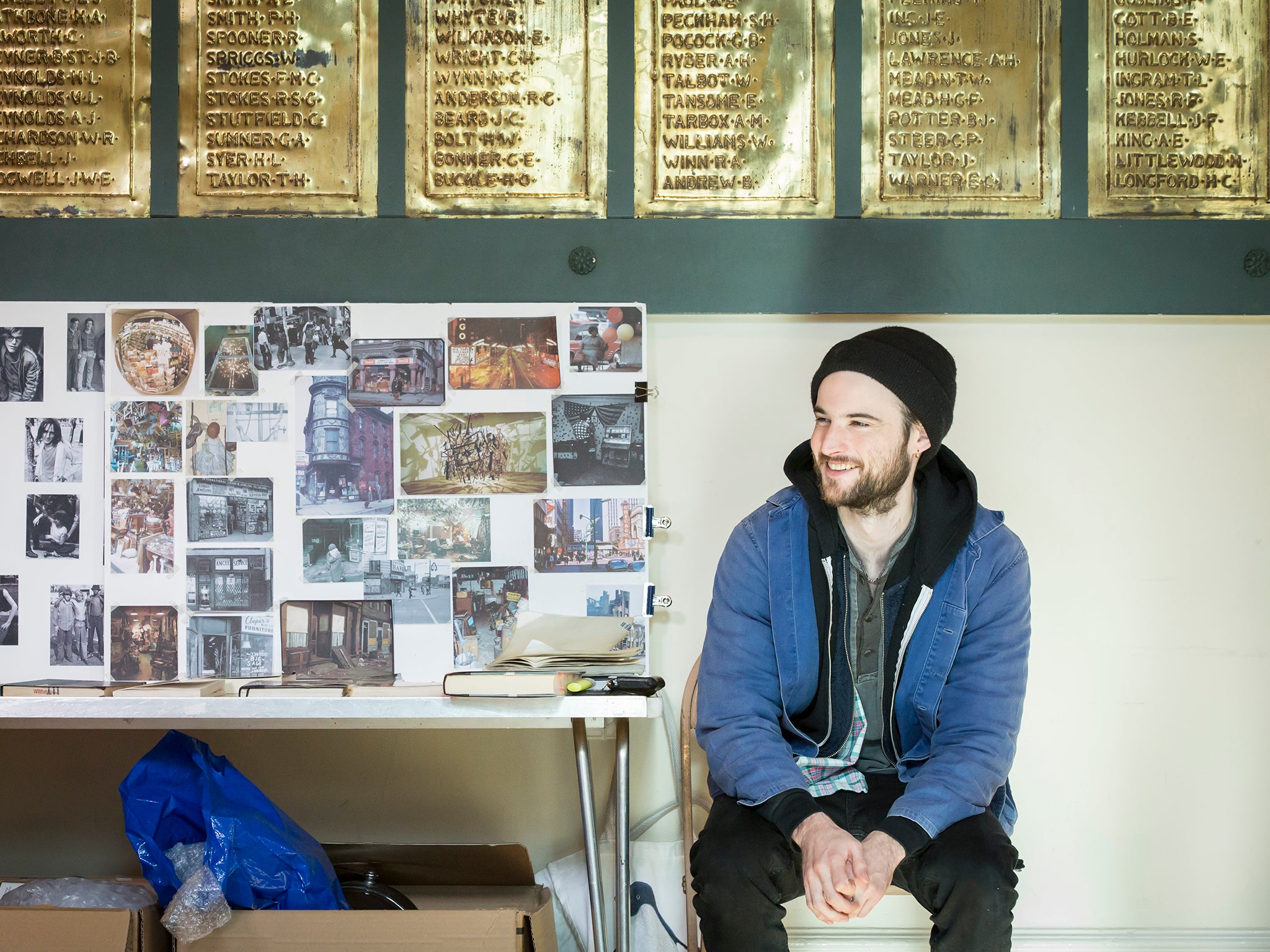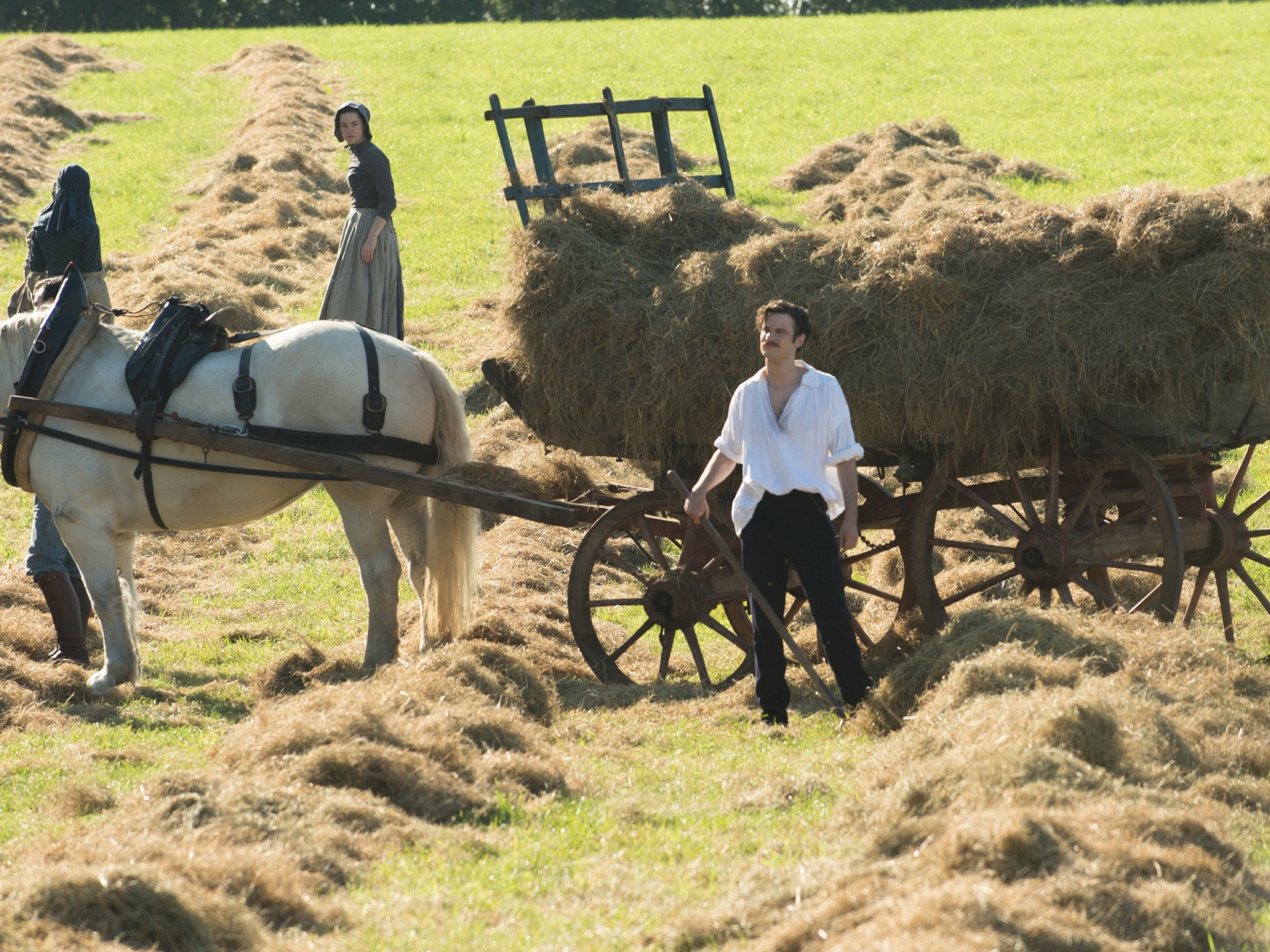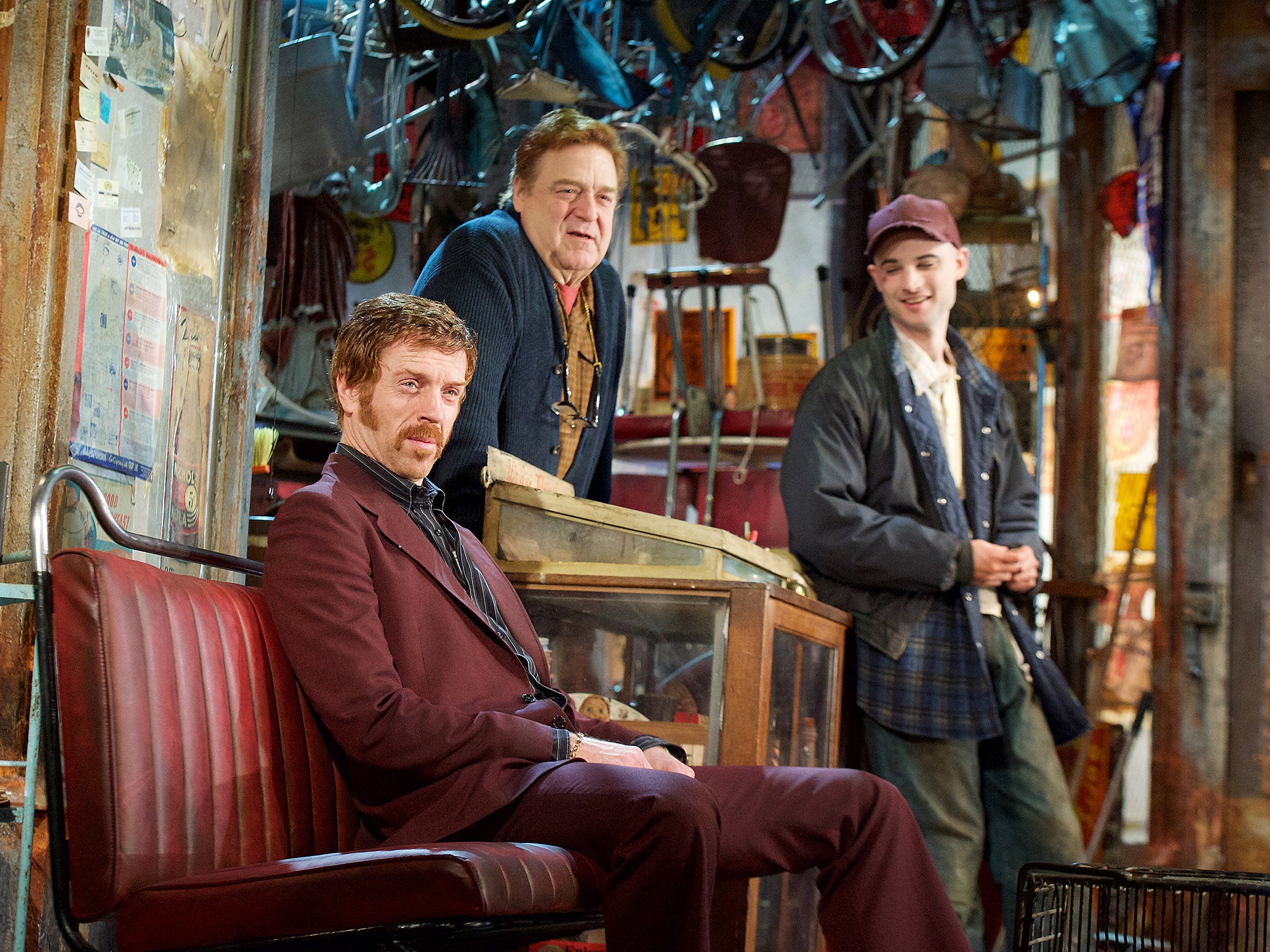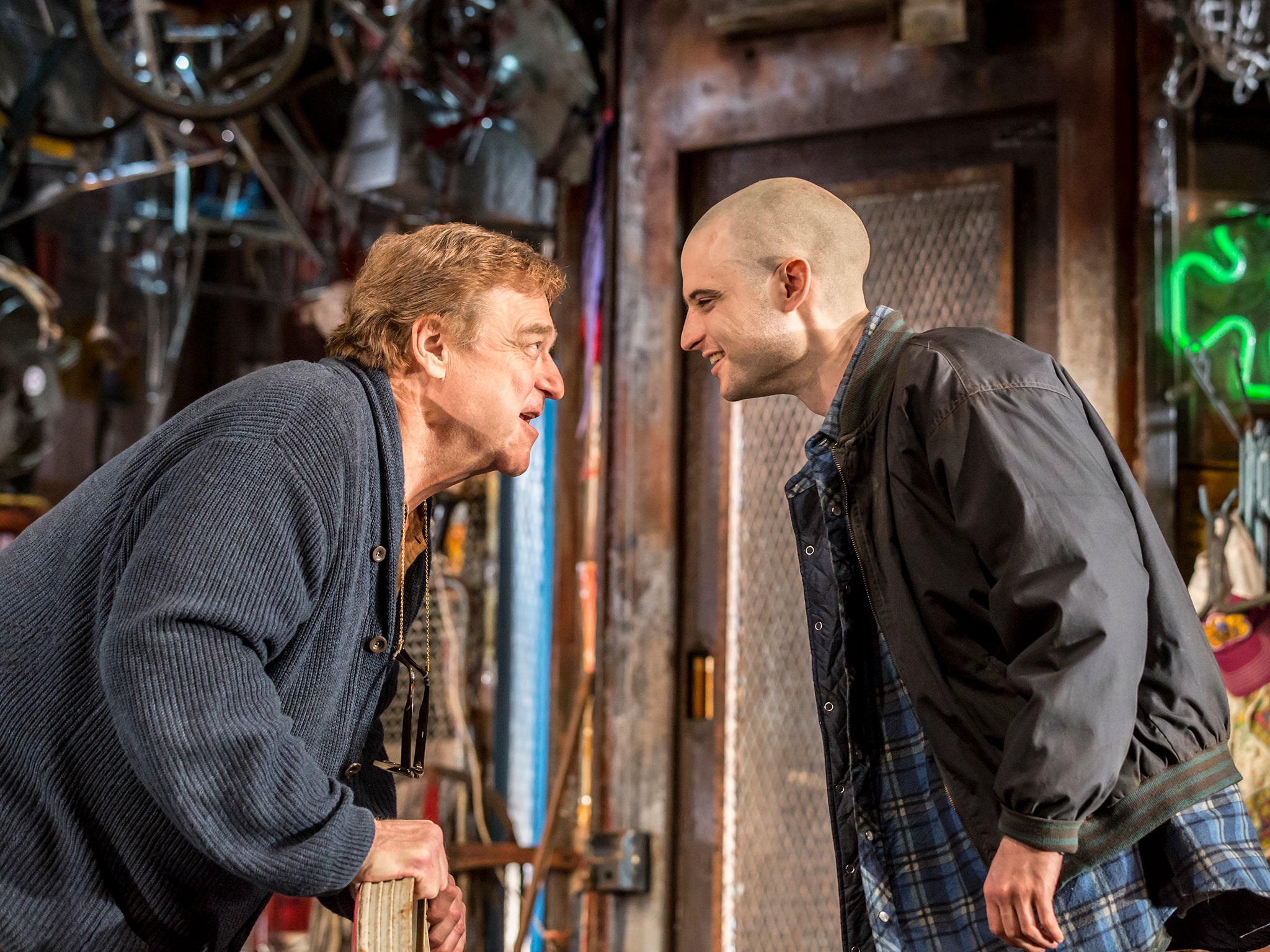Tom Sturridge interview: Best friend of Robert Pattinson on starring in Far from the Madding Crowd and grabbing people's crotches
Starring roles in a film and a play make this a huge week for the actor Tom Sturridge. Emily Jupp finds the pressure is getting to him

Your support helps us to tell the story
From reproductive rights to climate change to Big Tech, The Independent is on the ground when the story is developing. Whether it's investigating the financials of Elon Musk's pro-Trump PAC or producing our latest documentary, 'The A Word', which shines a light on the American women fighting for reproductive rights, we know how important it is to parse out the facts from the messaging.
At such a critical moment in US history, we need reporters on the ground. Your donation allows us to keep sending journalists to speak to both sides of the story.
The Independent is trusted by Americans across the entire political spectrum. And unlike many other quality news outlets, we choose not to lock Americans out of our reporting and analysis with paywalls. We believe quality journalism should be available to everyone, paid for by those who can afford it.
Your support makes all the difference.Tom Sturridge is an actor who’s so far been better known for his relationships with his fiancée, Sienna Miller, and his best friend, Robert Pattinson, than for his own acting CV, but that could all change this week with two high-profile projects. He’s starring in a new film version of Thomas Hardy’s classic, Far from the Madding Crowd, as Sergeant Frank Troy, the love interest of Carey Mulligan’s Bathsheba, and he’s also playing opposite Damian Lewis and John Goodman in the new revival of David Mamet’s play American Buffalo.
Though one character is a scoundrel in uniform and the other a former drug addict, there are certain, rather weird similarities in Sturridge’s performances of both the characters; they both have a cruel streak, and they have a tendency to get inappropriately handsy.
In the film, directed with quirky swiftness by Thomas Vinterberg, there’s that famous seduction scene (“The Hollow Amid the Ferns”) in which Sergeant Troy thrusts a sword at Bathsheba in a thinly veiled phallic gesture. The scene ends with a kiss but in the new film version, in a moment that is most definitely not in Thomas Hardy’s original tale, Sturridge forcefully grabs at Mulligan’s vagina through her dress.
“Did I? Maybe that was improvised,” he cackles with a rakishly raised eyebrow. “In fact, I thought I almost grabbed John’s crotch at one point today.”
We are in Sturridge’s dressing room at Wyndham’s Theatre in the West End after a preview performance of American Buffalo, in which Sturridge plays wayward youngster Bobby, the assistant to John Goodman’s small-time criminal character Don Dubrow. And he did grab his crotch.
In the scene we’re discussing, Sturridge stands opposite Goodman at the very front of the stage, physically hunched over, hands twisted inward. The hand nearest the audience hovers by Goodman’s cardigan pocket and then very slowly, hesitantly, brushes his groin. It’s a movement that makes you do a mental double-take, not least because it doesn’t fit with the paternal image that Don shows towards Bobby.
“Maybe it’s a thing I have... I have never done that before [in rehearsals]. I don’t know why I did that. I think I have a thing about grabbing all these crotches at tense moments... I’m sensing this is a weird perversity you’ve seen in me, which I like.
“To be honest I am still trying to work out what his physicality is... you suddenly realise something you’ve been doing for six weeks makes no sense and you have to completely reconstruct what your idea of the character is, which is exciting because it means when you go on that night you’re terrified, which normally means somewhere it’s right. Scary things are good aren’t they?”
Even if he did something totally radical, you get the sense Lewis and Goodman in all their consummate brilliance would take it in their stride and make it work. “I feel like I learn [from them] all the time, definitely,” he says, “for different reasons their work has been very important to me and so I was proud to be in the room with them.”

The yellow-walled dressing room has a conspicuous void of mementos from his family; no photos, not even a good luck card. When he leaves the room in search of a lighter he tells me I’m welcome to rummage around and so I flick through his battered copy of the script. There’s a point before the interval where he says. “I’ll come back later.” Sturridge has written in pencil. “I’ll come back different.”
On a side table next to the sink is a razor, covered with a worn brown hand towel, where Sturridge shaves his head to maintain his buzz cut. There’s also a pot of glue-like liquid that he’s been using to paint small scars on his face. Tonight there’s a tiny nick just below his eye, no bigger than a fingernail.
“I’ve become obsessed with making these scars that are totally useless and not valuable to the play at all but keep me happy for some reason,” he says. “There’s a kind of myth that things are really comfortable if you’re an actor but this is what it is,” he shrugs. “I like it but this is one of the nicest theatres though, in London. I like it because of that.” He points through the open window at the chef cooking on the third floor of the restaurant opposite. “That’s who I waved at earlier.”
Sturridge has grown up in the acting business. His father is the director Charles Sturridge and his mother is actress Phoebe Nicholls. Sturridge’s first professional performance was at the age of eight, in his father’s 1996 television adaptation of Gulliver’s Travels, although he’s dismissive of the role.
“I was eight,” he says defensively. “It was more of a kind of man wanting his son to be close to him in a situation. I don’t really regard that as my acting CV because I don’t remember it. Do you remember when you were that age?”

He is resistant to the idea that his family or associations with his best mate, Robert Pattison, may have helped him in his career. “I went to school with my best friend. We’ve been at school since we were 13 so that’s why he’s my friend. I know people because that’s my job,” he says.
Instead of going into acting at a young age, Sturridge veered away from that career path at first, he didn’t do any drama at the £13,500-a-year Harrodian School in west London (where he met Pattinson), and then he dropped out before sitting his A levels.
“It would be disingenuous of me to say I didn’t understand it because it was in my family but I was a relatively clichéd teenager and I didn’t want anything to do with what my parents did,” he says. But eventually he came round to the idea. At 18 he performed in Being Julia starring Annette Bening and Jeremy Irons. It was the director István Szabó who made him want to take the part as Julia’s son, Roger. “I lived in Hungary on my own for a couple of months and he’s a great artist so it was a very seductive experience.”
He still wasn’t convinced that the acting route was for him until he made his stage debut in 2009, in Simon Stephens’ Punk Rock for which he received Critics Circle Best Newcomer and was nominated for the Milton Shulman Award for Outstanding Newcomer at the Evening Standard Theatre Awards. He played a character based on the Columbine High School killers. “It was something that I can’t articulate but it felt important and it felt like it was something I could do.”
Since then Sturridge has been involved in a number of small projects. He appeared opposite Rachel Bilson in the 2011 film, Waiting for Forever in which he played a stalker, street-performer and love interest of Bilson’s character. The film was generally panned by critics. He also played a role based on poet Allen Ginsberg in Walter Salles’s 2012 film adaptation of Jack Kerouac’s On the Road opposite Pattison’s then girlfriend Kristen Stewart.

Sturridge is resistant to discussing his relationship with Sienna Miller, whom he started dating in 2011, not long after she split from Jude Law for the second time. The couple have a two-year-old daughter, Marlowe Ottoline Layng Sturridge. I ask how often he gets to see her considering their hectic schedules.
“I’m not going to talk about that. There are people I know really well who I wouldn’t talk about that with.”
He’s also monosyllabic when discussing co-star Carey Mulligan, whom he’s been friends with for “some time”. He describes her as a “tough girl”, “lovely” and “professional” and then starts to reject my questions completely, calling them “stupid”.
His phone goes off and he checks it slowly. Then, seemingly wanting to change the line of questioning, he asks about the use of the personal pronoun in journalism and quizzing me about my dream job. After offering a full and satisfactory answer I then ask him about his.
“The phrase ‘dream career’ sounds pretty stupid,” he spits, “what a stupid thing to say.” Then all in a rush: “The one thing I do know is that I don't have any tools or muscles to do it and so I don’t see it as one job. I see every [job] as ‘how the fuck do I solve this problem and get away with it?’ I am just solving this problem now, that’s the way I think about things. I don’t have a general archetypal platonic shadow, ‘acting’” he makes air quotes, “concept about it. I am just finding out how to keep this alive.”
He pauses and then mumbles, “It’s really unfair to interview someone after a show”, and I leave him to ponder how to sort out his character for opening night.
‘Far from the Madding Crowd’ is in cinemas on 1 May. ‘American Buffalo’ is at the Wyndham’s Theatre to 27 June
Join our commenting forum
Join thought-provoking conversations, follow other Independent readers and see their replies
Comments